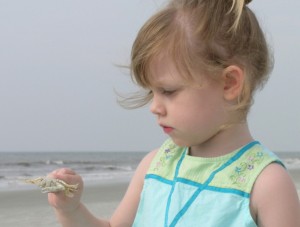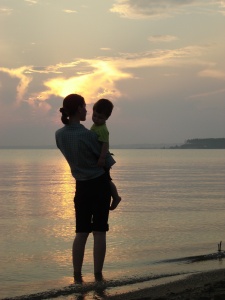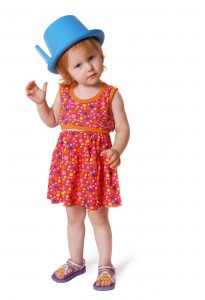Just three weeks ago I paced the house, cleaning and straightening. I was nervous about breaking the horrible news that our neighbor and first-grade teacher had died suddenly. My eight-year-old daughter adored this woman and I knew that she would be hurt.
 Children learn about death from many sources, but they learn about grieving from the people they love most.
Children learn about death from many sources, but they learn about grieving from the people they love most.
Many AP parents want to know how to be an attached parent beyond the baby years. I hope this post helps others to understand how the principles of AP can come together to help you make gentle parenting choices throughout the lives of your children. I did not realize until now just how many AP principles went into my approach.
I learned of the death after dinner, but knew that the end of a long day was the wrong time to tell her. We were still uncertain about the cause of death and hoped that morning would bring more information. Such tragic news delivered at bedtime was sure to bring poor sleep and nightmares. (API Principle 5: Ensure safe sleep; physically and emotionally)
After a good, healthy breakfast (Principle 2: Feed with love and respect) and some play time with her sisters, I found a chance to tell her alone. Random bits of advice and knowledge had swirled around in my head all morning.
Years ago, I heard a child psychologist tell parents that bad news should be delivered to children during the first ten seconds of the conversation. Children often get lost and overly anxious if you spend too much time trying to soften the blow. (Principle 1: Prepare for parenting)
Remembering this, I held her hands (Principle 4: Use nurturing touch) and told her that I had something hard to tell her. She was sitting across from me on my bed. I watched her head drop and her tiny heart break with the horrible words, “Mrs. Apolzan died this weekend.”
With just the slightest movement of my hands, she fell into my arms so we could cry together. (Principle 3: Respond with sensitivity.) Over the next few days, I answered all of her questions as patiently and honestly as I could. We allowed her to cry, to be sad, but also to forget all about it and just play.
She attended a painfully sad memorial service with me at her request and we talked about different customs regarding death, funerals and burial options. She is a very inquisitive child and the extra information seemed to help her to sort out her feelings.
Death is painful only to the living. I did not want to write about it. Looking back now, I realize I simply did not want to live it. I certainly did not want to be the one to inflict the heartache of death upon my child.
But, I’m a mother.
I could never let someone else deliver such a crushing blow. My only real choice was to catch her, to hold her and to love her while she learned this painful lesson of life.
Grace and peace.
We loved you, Mrs. Apolzan, and we will always be grateful for our opportunity to know you.





